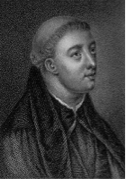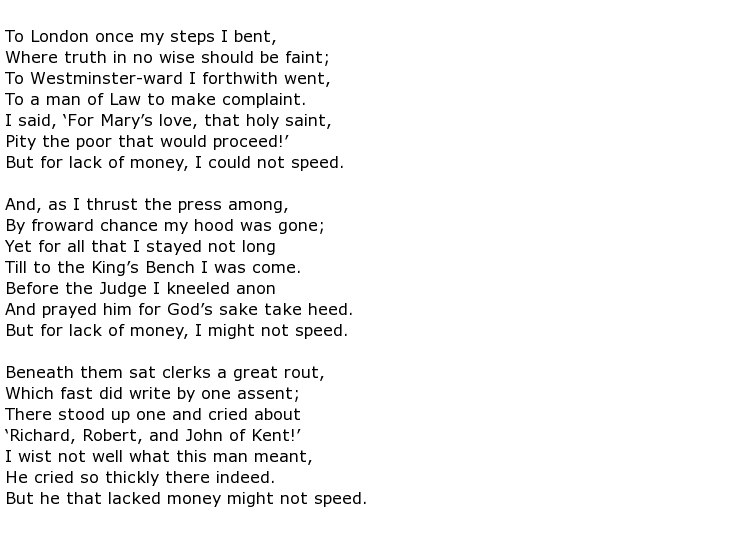 John Lydgate was a medieval English poet who spent much of his early life as a monk at the Benedictine abbey of Bury St Edmunds in the eastern county of Suffolk. Sometimes known as John of Lydgate, because he came from a village of that name, he had ambitions beyond the gates of the abbey and it is generally believed that he travelled widely throughout Europe, thus giving up on a monastic career which had seen him progress from sub-deacon through to priest by 1397. He certainly had a great desire to become a writer in a similar vein to that of the famous Geoffrey Chaucer, a man who he was briefly acquainted with.
John Lydgate was a medieval English poet who spent much of his early life as a monk at the Benedictine abbey of Bury St Edmunds in the eastern county of Suffolk. Sometimes known as John of Lydgate, because he came from a village of that name, he had ambitions beyond the gates of the abbey and it is generally believed that he travelled widely throughout Europe, thus giving up on a monastic career which had seen him progress from sub-deacon through to priest by 1397. He certainly had a great desire to become a writer in a similar vein to that of the famous Geoffrey Chaucer, a man who he was briefly acquainted with.
It is impossible to pinpoint exactly when Lydgate was born but the year 1370 seems to be a likely starting point. His boyhood was that of a typically lively youngster who skipped his lessons and matins at the monastery whenever he could. Despite a somewhat rebellious streak he still managed to study enough to get to his ordination as a sub-deacon in 1389. Unwilling to be restrained by the walls of a rural monastery, Lydgate studied at various universities both in England and in Europe. He almost certainly spent a great deal of time in France and possibly in Italy as well, though there are doubts surrounding stories that he got that far.
There are accounts of him spending time as a teacher, probably offering private tuition to the children of noblemen and rich gentlemen. All the while though he was writing prodigious amounts of poetry. Indeed, many say that his output was in excess of 150,000 lines of verse. He considered Chaucer to be his “master” as regards literary prowess, with references to him appearing in work such as The Troy Book which was written sometime between 1412 and 1420, and The Story of Thebes (1420-1422). It may be though that he sacrificed quality for quantity with his work sometimes being described as “rough-hewn”. He was, however, capable of good work, as evidenced in two allegorical poems Complaint of the Black Knight and Temple of Glass. These were certainly in the Chaucer class and many critics have bemoaned the fact that he did not limit himself to such works instead of producing vast quantities of relatively mediocre poetry.
An example of such criticism would be due to Lydgate’s apparent overuse of polysyllabic terms. He was censured by one critic called John Metham thus:

Lydgate could, sometimes, turn his hand to light hearted, satirical pieces such as The London Lickpenny (also known as The London Lackpenny). Medieval historians will argue that he was the author of this poem but others have also been credited with re-writing it. Here are the first three verses:

One thing that is beyond dispute is that Lydgate was able to obtain some very high profile patronage throughout his writing career. He was favoured at the royal courts of three kings of England, the chapter of St Pauls Cathedral and various lords and dukes, including Humphrey, Duke of Gloucester.
Finally, here are two notable facts about his work. It is believed that he was the first person to use the word “talent” when referring to someone’s natural ability. The other thing is that he used the adage “needs must” for the first time in his piece called The Assembly of Gods.
There is little recorded about his final years but it is believed that he died in the monastery of Bury St. Edmunds, back where he started it all. This was some time during 1451 which would have made him around 80 years old.

